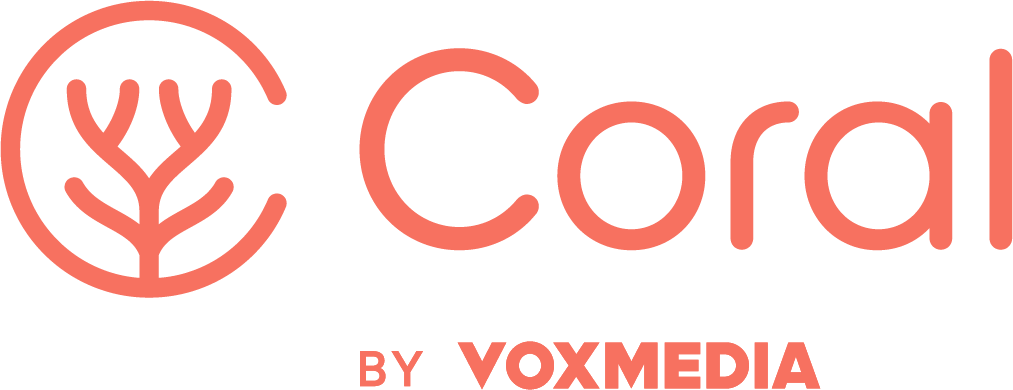Journalism
- Engaged Journalism: Connecting With Digitally Empowered News Audiences by Jake Batsell (Columbia Journalism Review Books, 2015)
A great selection of relevant examples and useful context around ways to improve engagement in newsrooms.
Local library | IndieBound | Amazon
- Discovering the News: A social history of American newspapers by Michael Schudson (Basic Books, 1978)
A compelling read that explains how newspapers grew to be so culturally relevant, and debunks the ideal of ‘objectivity’ in American media.
Local library | IndieBound | Amazon
Community design
- Design For Real Life by Sara Wachter-Boettcher and Eric Meyer (A Book Apart, 2016)
Its focus on design as a system of support and a need to understand “stress cases” are especially valuable in journalism, where people are often contacted during highly stressful moments in their lives.
Local library | Amazon
- Building Successful Online Communities: Evidence-Based Social Design by Robert E. Kraut, Paul Resnick, Sara Kiesler, Moira Burke, Yan Chen, Niki Kittur, Joseph Konstan, Yuqing Ren, John Ried (MIT Press, 2012)
This essential book takes social science research and applies it to a variety of design experiments that you can try with your communities. A huge favorite with The Coral Project team.
Local library | IndieBound | Amazon
- Community Building on the Web: Secret Strategies for Successful Online Communities by Amy Jo Kim (Peach Pit Press, 2000)
Foundational text from the early days of online community. Its discussions of strategies around identification and validation remain vital today.
Local library | Amazon
Moderation, Trolling, and Online Harassment
- The Internet Of Garbage by Sarah Jeong (Forbes Media, 2015; updated 2018)
Jeong classifies harassment as part of the garbage of the internet and describes the different ways that it intersects with the law. She also outlines ways that companies can directly combat it through smarter design.
Download for free via The Verge
- This Is Why We Can’t Have Nice Things: Mapping the Relationship between Online Trolling and Mainstream Culture by Whitney Phillips (MIT Press, 2015)
Phillips’ analysis of trolling and its place in society is an important read understand the context around why online discussion can take such dark turns.
Local library | IndieBound | Amazon
- Haters: Harassment, Abuse, and Violence Online by Bailey Poland (Potomac Books, 2016)
A useful and harrowing summary of online misogyny and the ways that its perpetrators manipulate poorly designed technology to put people’s lives at risk.
Local library | IndieBound | Amazon
- Reading the Comments: Likers, Haters, and Manipulators at the Bottom of the Web by Joseph M. Reagle (MIT Press, 2016)
A broad discussion of online critics, reviews, and commenters, and a look at the ways that web criticism can shape our self esteem and self image.
Local library | IndieBound | Amazon
- Dark Matters: On The Surveillance of Blackness by Simone Browne (Duke University Press, 2015)
The history of interactions between technology and blackness covers centuries of surveillance and oppression. Browne’s survey gives much-needed context on how distrust develops, and the deep care that is particularly owed to marginalized populations when collecting data or requesting access to information.
Local library | IndieBound | Amazon
- Custodians of the Internet: Platforms, Content Moderation, and the Hidden Decisions That Shape Social Media by Tarleton Gillespie(Yale University Press, 2018)
An examination of the politics and moral grey areas that surround content moderation on social media. A lot of the same lessons apply to smaller communities.
Local library | IndieBound | Amazon
Inspirations from other places
- Experimental Modes of Civic Engagement in Civic Tech by Laurenellen McCann, edited by Daniel X. O’Neil (Smart Chicago Collaborative, 2015)
A series of essays explaining how to keep your focus on people not technology, and building with and not for. At its heart is a drive to respect communities and their needs for what they are, and not just for what you want them to help you with.
Download for free | Amazon
- How to Talk So Kids Will Listen & Listen So Kids Will Talk by Adele Faber and Elaine Mazlish (Scribner, 2012)
The techniques and exercises in this book on how to validate emotions while setting behavioral expectations are strong foundations for solid moderation work.
Local library | IndieBound | Amazon
- Respect for Acting by Uta Hagen with Haskel Frankel (Wiley, 2008)
Community is a form of performance. The essential chapters are “Concept” and “Identity”, which help build solid understandings around how people enter different spaces, and around understanding motivations as a method of handling different community issues.
Local library | IndieBound | Amazon
- Theatre of the Oppressed (Theatre Communication Group, originally 1979, reissued 2013 ) / Games For Actors and Non Actors (Routledge, 2002) by Augusto Boal
Concepts of simultaneous dramaturgy and forum theatre provide great lenses for imagining community involvement as a method of co-production for journalism.
Local library | IndieBound | Amazon
- The Art of Relevance by Nina Simon (Museum 2.0, 2016)
Simon explains how to reinvent museum practice through examples of deep community ties and co-operative storytelling in three dimensions.
Local library | IndieBound | Amazon
- Your Call Is (Not That) Important to Us: Customer Service and What It Reveals About Our World and Our Live by Emily Yellin (Free Press, 2010)
The disdain that so many companies have about their own customers may resonate in some newsrooms – as will the need to change it.
Local library | IndieBound | Amazon


![[IMAGE] A pile of overlapping open books](https://guides.coralproject.net/wp-content/uploads/2017/07/pexels-photo-486841-e1501002972159.jpg?w=1272&h=500&crop=1)